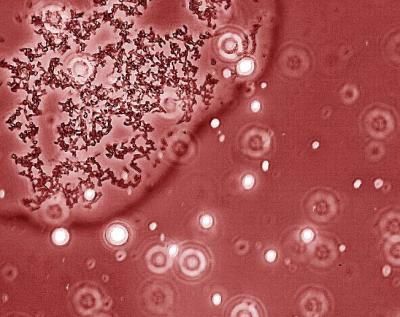Novartis and Massachusetts Institute of Technology (MIT) in new partnership aimed at transforming pharmaceutical manufacturing
* Novartis to invest USD 65 million in MIT research to develop new technologies for continuous manufacturing, from chemical synthesis to final product
Novartis and the Massachusetts Institute of Technology have launched a long-term research collaboration aimed at transforming the way pharmaceuticals are produced.
The 10-year partnership, known as the Novartis-MIT Center for Continuous Manufacturing, will work to develop new technologies that could replace the conventional batch-based system in the pharmaceuticals industry - which often includes many interruptions and work at separate sites - with continuous manufacturing processes from start to finish.
The Novartis-MIT Center for Continuous Manufacturing combines the industrial expertise of Novartis with MIT's leadership in scientific and technological innovation. Novartis will invest USD 65 million in research activities at MIT over the next 10 years.
Novartis and MIT expect the technologies created in this collaboration will benefit patients and healthcare providers through a positive impact on supply availability and the quality of medicines. These technologies will also seek to reduce the environmental impact of manufacturing activities.
The pharmaceutical industry currently uses batch-based manufacturing that has been common for several years, even though other industries have moved to continuous manufacturing.
In this often time-consuming process, pharmaceutical active ingredients are synthesized in a chemical manufacturing plant. These ingredients are then shipped to a manufacturing facility, often at another site, where they are converted through defined processes into giant batches of pills, liquid or cream. With multiple interruptions, including transport to separate locations, each batch may take weeks to produce. In addition, manufacturing design and scale-up for a new drug are very costly and time-consuming.
Expected benefits of continuous manufacturing include accelerating the introduction of new drugs by designing production processes earlier; using smaller production facilities, with lower building and capital costs; minimizing waste, energy consumption and raw material use; monitoring quality assurance on a continuous basis instead of post-production batch-based testing; and enhancing process reliability and flexibility to respond to market needs.
The initial research of the Novartis-MIT Center for Continuous Manufacturing will be conducted primarily through Ph.D. programs at MIT laboratories, and then transferred to Novartis for further development to industrial-scale projects.
The partners expect the Center's work to involve seven to ten MIT faculty members, as well as students, postdoctoral fellows and staff scientists. Novartis will commit its manufacturing and R&D resources and will pilot new manufacturing processes with one of its pharmaceutical products.
Other news from the department science
These products might interest you

Systec H-Series by Systec
Safe, reproducible and validatable sterilization of liquids, solids and waste
Autoclaves with 65-1580 liters usable space, flexibly expandable for various applications

Whatman™ folded filter papers by Cytiva
Whatman folded filter papers
Convenient folded formats speed up your sample preparation

Get the life science industry in your inbox
By submitting this form you agree that LUMITOS AG will send you the newsletter(s) selected above by email. Your data will not be passed on to third parties. Your data will be stored and processed in accordance with our data protection regulations. LUMITOS may contact you by email for the purpose of advertising or market and opinion surveys. You can revoke your consent at any time without giving reasons to LUMITOS AG, Ernst-Augustin-Str. 2, 12489 Berlin, Germany or by e-mail at revoke@lumitos.com with effect for the future. In addition, each email contains a link to unsubscribe from the corresponding newsletter.























































